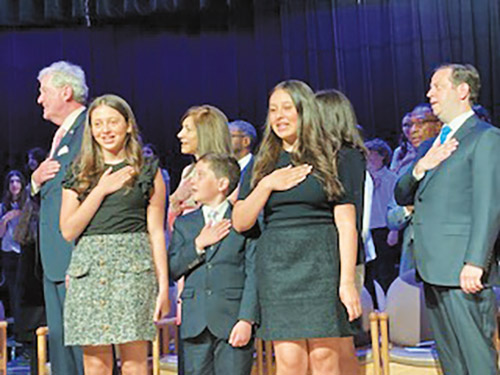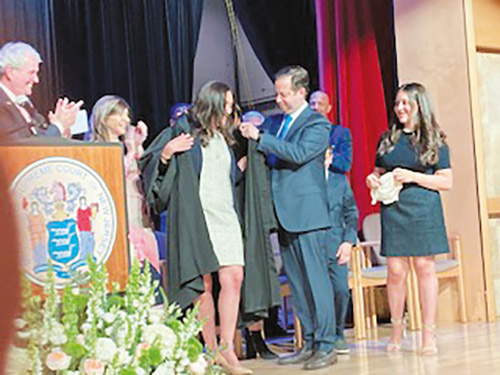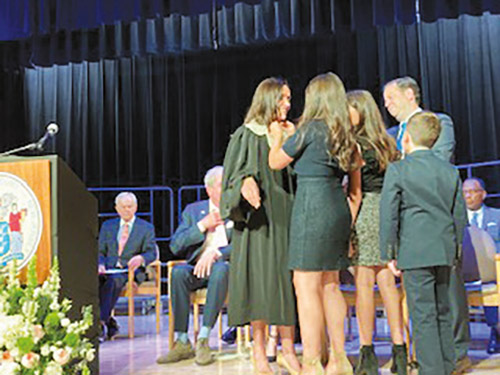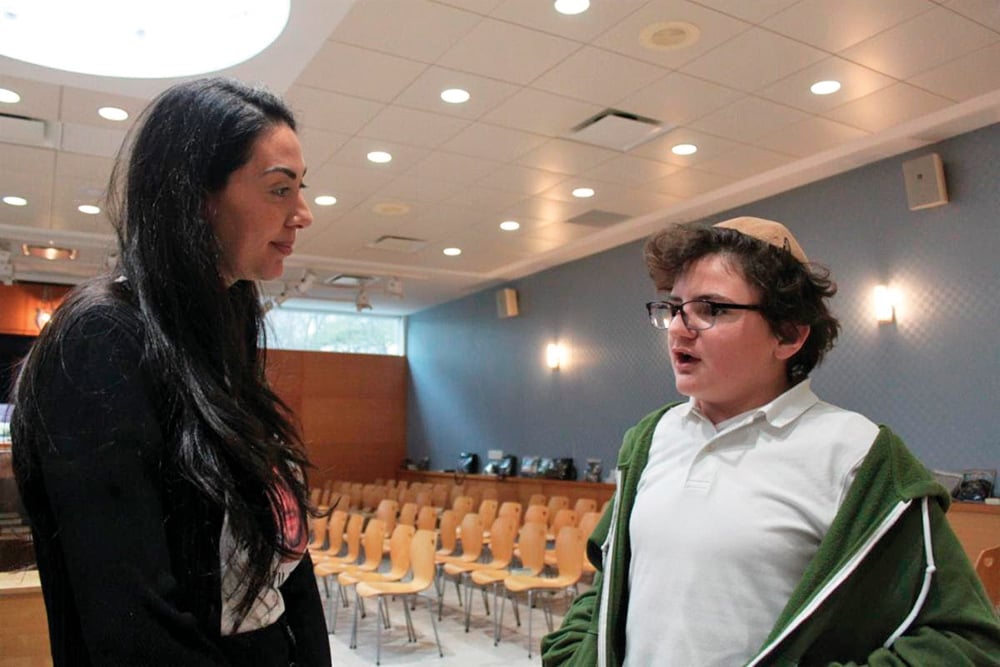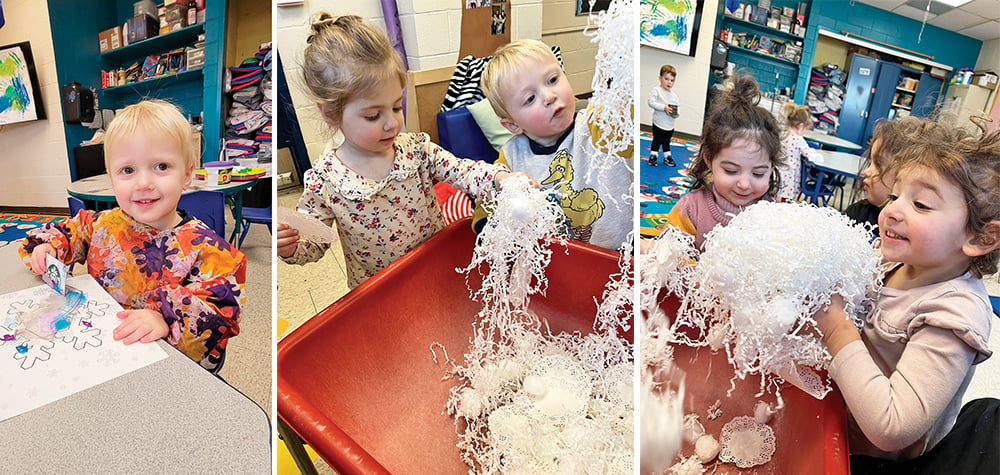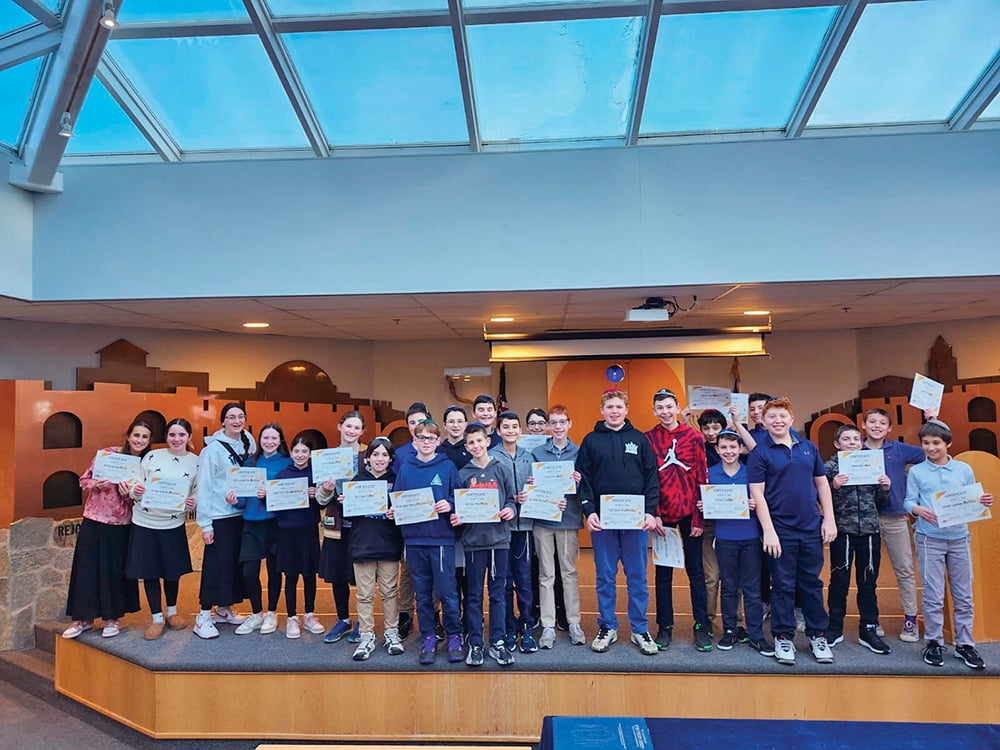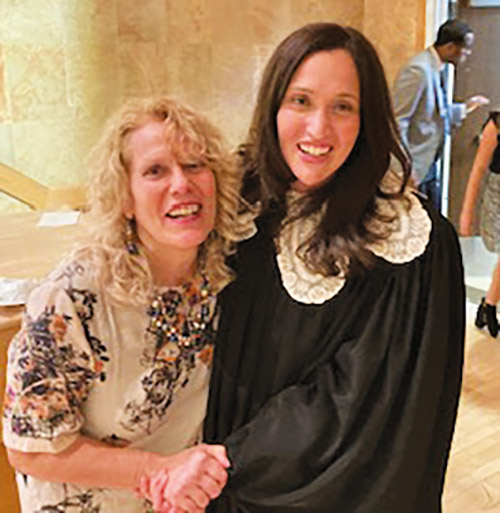
Justice Rachel Wainer Apter was sworn in as Associate Justice to the New Jersey Supreme Court before a packed and standing room-only audience at the Kaplen JCC on the Palisades last Thursday, May 11. She had first been nominated by Gov. Phil Murphy in 2021.
The ceremony was enhanced by the Apter’s three children, Eliana, Maya and Noam, leading the assembly with the Pledge of Allegiance, followed by the Solomon Schechter Day School Chorus singing “America the Beautiful.”
Among the experiences on the extensive and impressive resume of Apter is her service as a clerk for Justice Ruth Bader Ginsburg. Apter followed in Ginsburg’s footsteps as a civil rights lawyer. The list of Apter’s accomplishments is distinguished and lengthy, including her well-known and successful drive compelling Facebook (now Meta) to confront and manage the hate speech on its platform, and the reforms Apter proposed to address sexual harassment.

Both the Governor and the Honorable Stuart Rabner, Chief Justice, New Jersey Supreme Court, who administered the oath, raved about Apter’s service to the state prior to her appointment as Justice. Governor Murphy also commented, based on his previous experience with Apter’s work, that “she realizes that her Supreme Court decisions are significant not only to the cases being deliberated, but by everyone who will be impacted by those decisions.” He also expressed his confidence that “Rachel will serve the people of New Jersey for decades to come.”
The ceremony opened with accolades by Chief Justice Rabner about Apter’s impeccable professional aptitude for the work of the New Jersey Supreme Court, noting her uncanny ability to apply her sharp, incisive and insightful knowledge of the law, combined with her also insightful and compassionate perspective on humanity. In fact, every speaker discussed “hearts.” Rabbi Akiva Block of Kehilat Kesher in Englewood delivered a meaningful invocation and highlighted Apter’s big heart for kindness, well known in the congregation. Apter’s close and long-time friend, Arielle Greenbaum Saposh, added her serious and sometimes entertaining remarks about their escapades during and after college and within their families’ friendships. She spoke about both Apter’s endearing attributes, and her ethic for just doing the right thing.
Justice Apter took her oath of office, her hand resting on a Tanach which was held by her husband, Jon. She was then robed by Jon, and collared by Eliana, their oldest daughter, with the now traditional lace collar (jabot) worn by women justices. But this was no ordinary judicial jabot; it was a most special one. The jabot was given to her by the family of the late Justice Ruth Bader Ginsburg, z”l, worn during her term of service on the US Supreme Court. Justice Apter later explained that the Tanach she chose was the very one that her grandparents, Ted and Lila Wainer, z”l, held at their wedding in 1944.
In her remarks following the ceremony, Justice Apter spoke with reverence about the influence of Justice Ginsburg upon her during her clerkship. She noted that at Justice Ginsburg’s own confirmation hearing, she had cited Judge Learned Hand’s famous “Spirit of Liberty” speech as an “apt paradigm” for judging. She explained, the spirit of liberty “…is not too sure that it is right, and so seeks to understand the minds of other men and women and to weigh the interests of others alongside its own without bias.” To this idea, Justice Apter responded, “I also pledge to serve as a steward of the Court itself, seeking to sustain and further its independence and integrity during my tenure.”
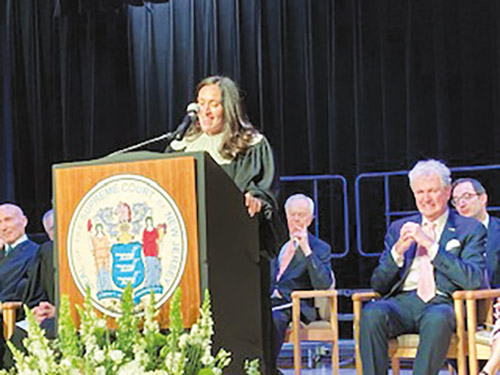
Building further on the idea, Justice Apter added that “judging requires equal parts humility. Humility to accept that in our constitutional system, the authority to decide difficult policy questions rests with our elected officials, not judges. Humility to learn from others. Humility to acknowledge that the role of a judge is not to make law, but to faithfully apply and interpret the text of laws enacted by the legislature and the text of our federal and state constitutions.”
To these principles she added, “I could not be prouder or more humbled to swim my part in a relay of the remarkable Justices of the New Jersey Supreme Court who have come before me, and those who are yet to serve.” She also made reference to the heart, as did other speakers before her, again emphasizing the importance of kindness and charitable acts as a priority for her and her family. She said, “I love you,” from the podium several times and to many people.
By Ellie Wolf
